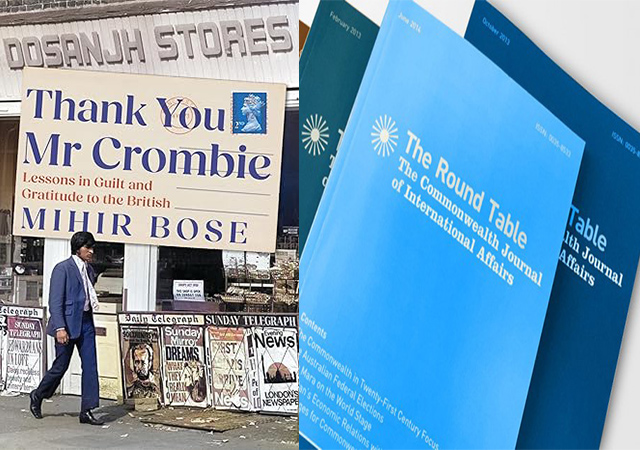
[This is an excerpt from an article in The Round Table: The Commonwealth Journal of International Affairs.]
Memoirs provide a great opportunity for writers to unburden themselves of painful experiences, such as being abandoned, or subjected to abuse at the hands of a violent or abusive parent. What is striking about this memoir by Mihir Bose is that although it is an honest account of his life in the UK which was tough, painful and challenging, he is not bitter and does not succumb to self-pity.
Bose and I are of the same post-colonial generation who arrived in the UK from India when we were in our early twenties. His book triggered memories of growing up in relatively privileged backgrounds in India with servants and surrounded by material comforts. For us, it was a shock learning to build new lives without these benefits and influential networks. Bose makes it clear that his is not a typical rags to riches story. He explains what he hopes readers will learn from his memoir:
It has always intrigued me that all the talk of immigration to the United Kingdom, which has been going on since I arrived here in 1969, is of people coming here to make money. In my case, I sacrificed money and lived in a Maida Vale bedsit because of the intellectual riches this country provides. But why is this country, the land of Shakespeare, not proud of those riches? Why does the west, whose historians wax lyrically about how Europe made the modern world, not make more of them? (p3)
In a witty and engaging way, Bose charts his journey from his life in Mumbai working in a well-established family business producing raincoats to achieving his lifelong ambition of becoming a successful writer in the UK. His aim had been to write a ground-breaking novel. Although this dream of becoming another best-selling novelist did not quite materialise, he surmounted many hurdles to become one of the most senior sports commentators and writers in the country.
Race was a key factor in his progress. He found his path blocked because of subtle and frequently blatant racism. To overcome this, in the early days he adopted an English name as a writer since he believed a brown man writing about football would not have credibility.
Book review – Dethroned: The downfall of India’s princely states
Rita Payne on Commonwealth journalism
The irony is that Bose grew up with deep admiration for the legacy of the British Empire. He went to a Jesuit school where the medium of instruction was English while learning Indian languages, like Marathi and Gujarati, was optional. He admits to a prevailing disdain among western-educated Indians for those whose English was poor. This attitude possibly accounts for the current hostility in India towards those like us who, perhaps with justification, are regarded as apologists for the British Empire.
Many strands run through Bose’s memoir with lively descriptions of people who had an impact on various stages of his life. We learn about the personalities of his beloved parents, social life traditions and customs in India and the many people in the UK who helped and, on occasion, sought to block his path to succeeding as a writer and commentator.
Bose is open about the complexities of the Indian class and caste system. One example is the status of their Brahmin cook. Although he was high caste, as a servant, he would eat and sit separately from the family. Bose’s memoir is peppered with other anomalies. He sees his life as one of being an immigrant in two different countries, one in the land of his birth and one in Britain. In India, there was a tight bond within the Bengali Hindu network with his parents deliberately cutting themselves off from other communities and after he moved to Britain Bose had to learn to survive as an immigrant in Britain.
Bose’s introduction to the world outside India came about after he was chosen to represent India in an elocution competition in Israel making him the first member of his immediate family to travel abroad. He encountered for the first time people of various nationalities and learned about the intricacies of interacting with women.
Rita Payne is a member of the Round Table editorial board.
Thank you Mr Crombie: Lessons in guilt and gratitude to the British by Mihir Bose, London, C. Hurst and Company Ltd, 2024.



